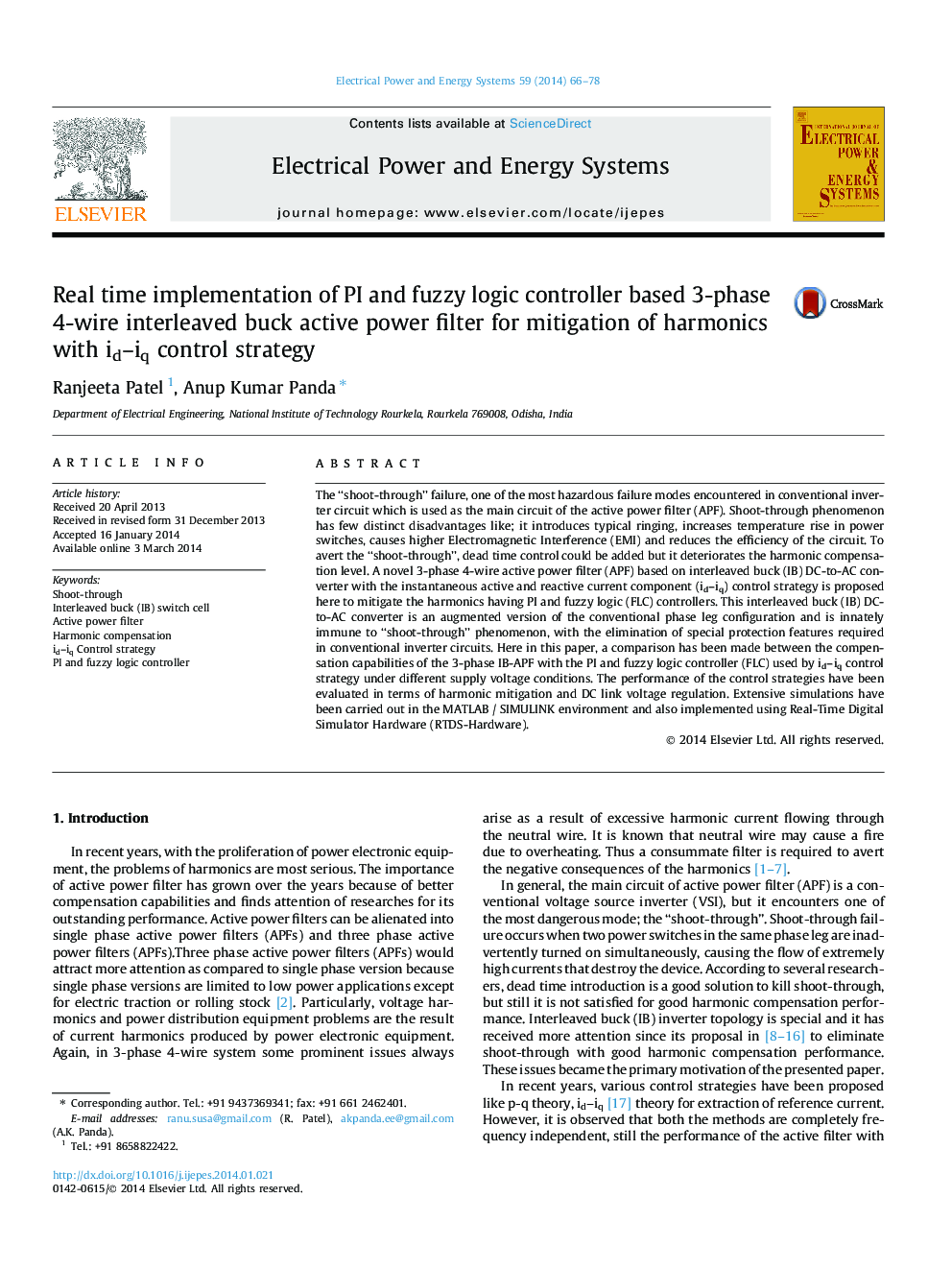| Article ID | Journal | Published Year | Pages | File Type |
|---|---|---|---|---|
| 398794 | International Journal of Electrical Power & Energy Systems | 2014 | 13 Pages |
•Introduction of IB-APF implemented by id–iq control strategy with PI and FLC.•Elimination of “shoot-through” failure and hence reliability increases of IB-APF.•The current and voltage stresses on the power switches decrease as no shoot-through.•RTDS hardware analysis under different supply voltage condition.
The “shoot-through” failure, one of the most hazardous failure modes encountered in conventional inverter circuit which is used as the main circuit of the active power filter (APF). Shoot-through phenomenon has few distinct disadvantages like; it introduces typical ringing, increases temperature rise in power switches, causes higher Electromagnetic Interference (EMI) and reduces the efficiency of the circuit. To avert the “shoot-through”, dead time control could be added but it deteriorates the harmonic compensation level. A novel 3-phase 4-wire active power filter (APF) based on interleaved buck (IB) DC-to-AC converter with the instantaneous active and reactive current component (id–iq) control strategy is proposed here to mitigate the harmonics having PI and fuzzy logic (FLC) controllers. This interleaved buck (IB) DC-to-AC converter is an augmented version of the conventional phase leg configuration and is innately immune to “shoot-through” phenomenon, with the elimination of special protection features required in conventional inverter circuits. Here in this paper, a comparison has been made between the compensation capabilities of the 3-phase IB-APF with the PI and fuzzy logic controller (FLC) used by id–iq control strategy under different supply voltage conditions. The performance of the control strategies have been evaluated in terms of harmonic mitigation and DC link voltage regulation. Extensive simulations have been carried out in the MATLAB / SIMULINK environment and also implemented using Real-Time Digital Simulator Hardware (RTDS-Hardware).
